Signature Plastics DSA Blank PBT Keycaps
Hello, hello. It’s been a long time since I wrote something, again. Recently, I bought myself some blank DSA, thin PBT keycaps from Signature Plastics, sister site Pimp My Keyboard. You might be wondering, what the heck do you mean by DSA, and PBT? And custom keycaps are possible?
If you don’t already know about mechanical keyboards, then you’re in for a treat (and a little ache in your wallet). Mechanical keyboards are keyboards that have individual switches for each key, such that it makes the keyboard heavier and more expensive. There are a few different types of switches, most popularly the Cherry Corperation’s Cherry MX switches, which have their own sub-types, buckling springs (found in old IBM Model M keyboards), Alps, Kailh (taken from Cherry MX switches), and Topre (debatably mechanical, they are capactive), and a few more. The common keyboard that you might be using is the rubber dome, in which under the key there is a rubber dome that is pressed down to the PCB and sends an electric signal to the controller. Thus, it rubber domes are capacitive. Check out /r/MechanicalKeyboards sub-reddit to read more and see some pictures of mechanical keyboards.
What are the advantages of a mechanical keyboard over the standard rubber dome? More or less, feel and quality. Keep in mind that mechanical keyboards are luxury items, and are somewhat enthusiast peripherals. The feel of the keys are usually much better than a rubber dome, some offering some tactile feedback to each keypress. Some switches also have audible clicking for more feedback, and are very satisfying to hear (for yourself, not your roommates/co-workers). Varying degrees of actuation force is also another factor, where some switches are very light to press, and others very hard to press. Finally, mechanical keyboards are built to last, as they are somewhat expensive and enthusiast products. Cherry MX switches are rated for 50 million keypresses, and the IBM Model M’s are still being used today by many enthusiasts, when they were manufactured in the ‘80’s and ‘90’s Wikipedia.
So what is DSA? DSA is a keycap profile, in which the height of the keys are all the same size, flat and have a spherical top, rather than the cylindrical top of the DCS family (most keycaps). Here is reference from Signature Plastics.
Now what is PBT? The full name is “polybutylene terephthalate”, a type of plastic (Wikipedia). Most keycaps are made from ABS Wikipedia, and are also found in things like LEGOs. PBT keycaps are another step into the luxury of mechanical keyboards, as they are less common, more expensive and offer some additional difference in feels. Some PBT caps are made with a rougher texture at the top of the keycap, and are sometimes much thicker than ABS caps, changing the feel of the keypress. Furthermore, PBT caps also suffer less from the shiny and greasy feel of the keycap after using the keyboard for many months.
Now on to the main event, my review of the PBT caps from Signature Plastics.
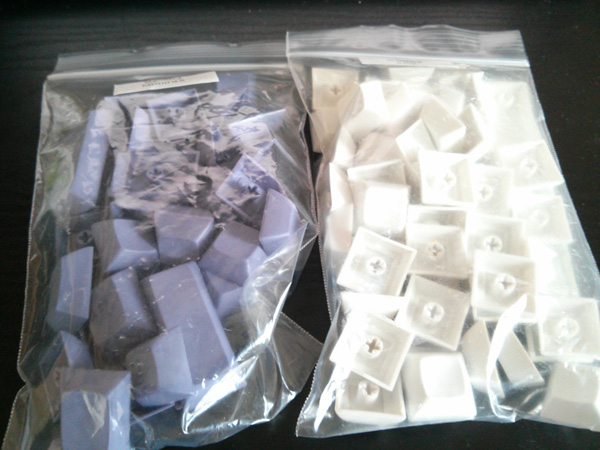
I bought a set of white keys for the standard keys, and a bag of purple modifier keys. They both cost around $19.
Here is what they look like:
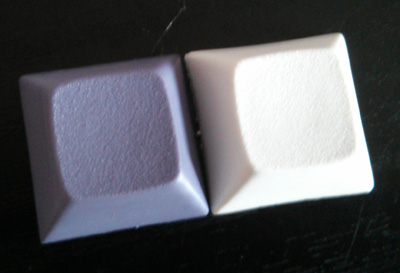
Notice the grainy top of the keycaps and the four corners. That is the texture and spherical shape I mentioned above. The texture is not too rough on these keycaps.
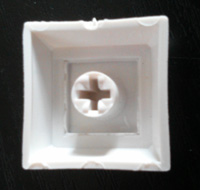
Now the issue with Signature Plastic’s cheaper PBT keycaps. The PBT in their keycaps are thin, rather than the thick ones, to save costs. Futhermore, PBT plastic is prone to warping so you can notice the bend in the sides of the keycaps. There is some excess plasic and dips from the manufacturing process, so it might be necessary to clean those off yourself. Also notice the + shape, it is the mount for the Cherry MX switch.
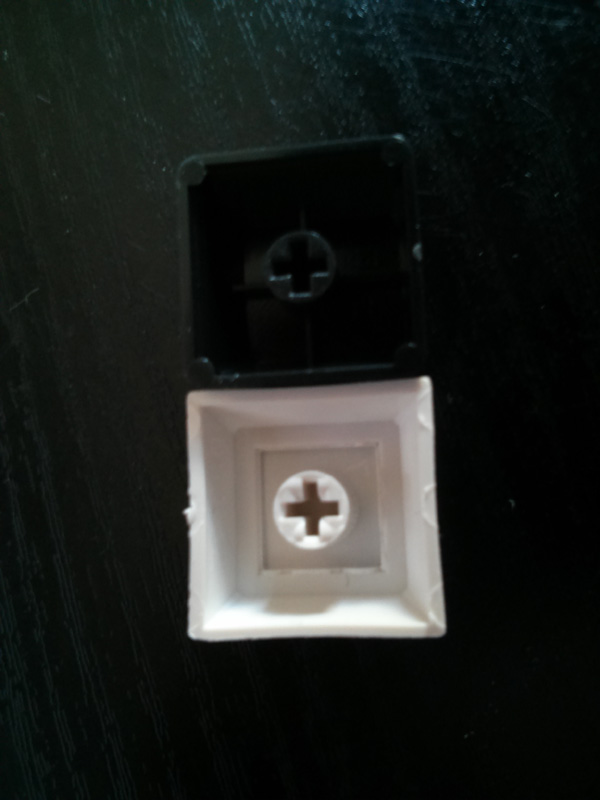
Mind the poor picture. This is the white PBT cap and stock QuickFire Stealth cap undersides. You can see that the ABS cap has straight sides, and the PBT cap is not much thicker than the ABS cap.
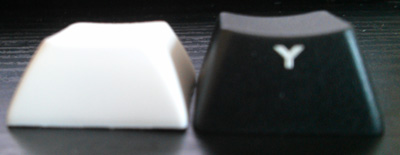
Out of focus pictures ahoy! Notice the shape of the ABS cap (right) shape. It is taller than the DCS family on the top row, and has the cylindrical shape.

Another out of focus picture. Ugh. Now, I added the home row keycap of the DCS family. Notice the difference in shape from the top row.
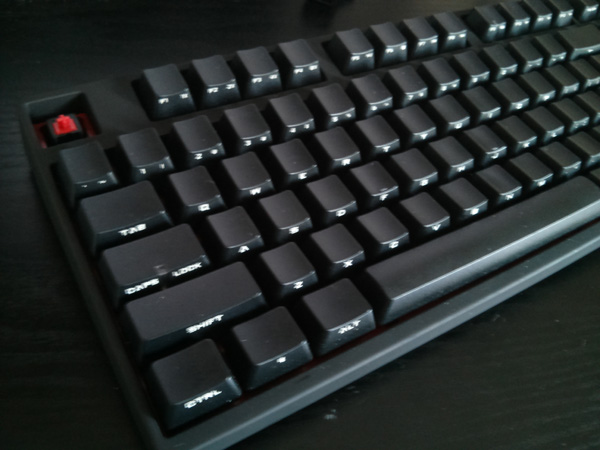
CoolerMaster QuickFire Stealth keyboard, with Cherry MX Red switches. Red switches are very light to press (45g actuation force) and are linear. Very smooth.
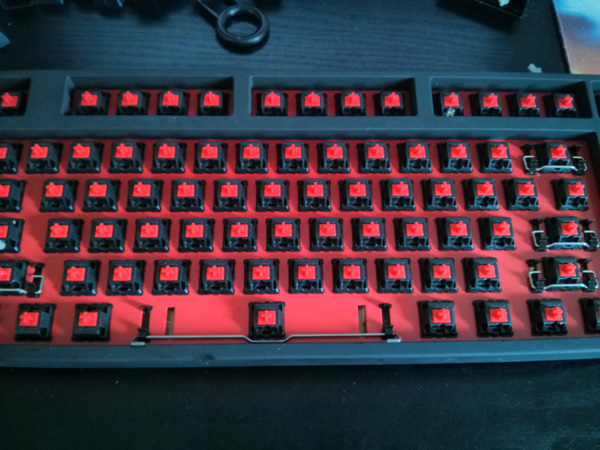
Removing all the keycaps with the cheap keycap puller at the top of the image, included with the keyboard. The QuickFire uses Costar stabilizers for the longer keys (the metal wires). Now you see the individual switches for each key.
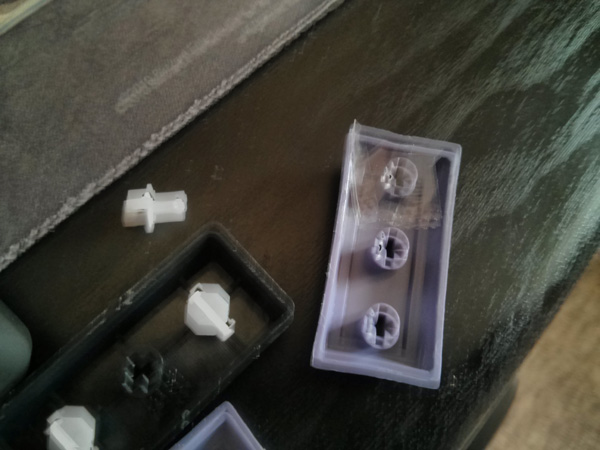
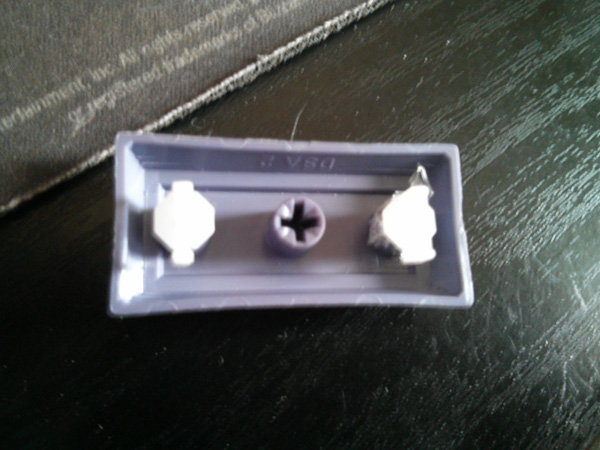
The PBT caps are loose on the stabilizers though, so the solution is to cut some sandwich bags into little squares and insert the stabilizers through them. I used saran wrap instead. Although it is a little thinner, wasting a little saran wrap is better than a whole sandwich bag.
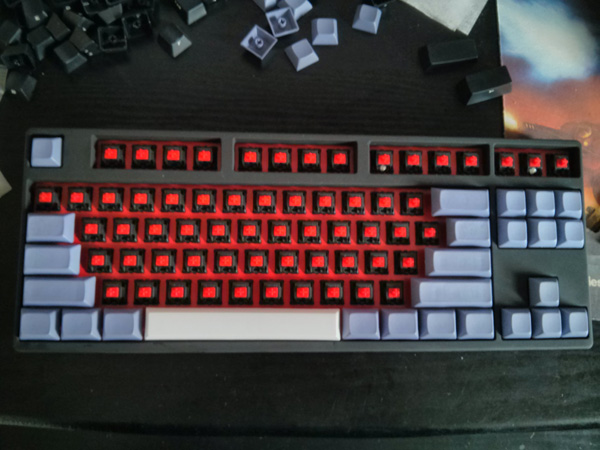
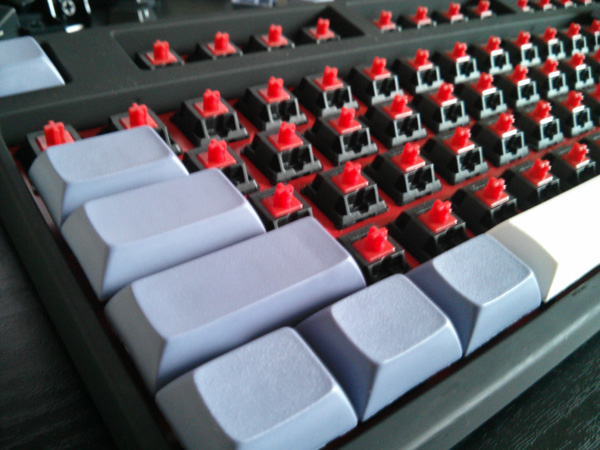
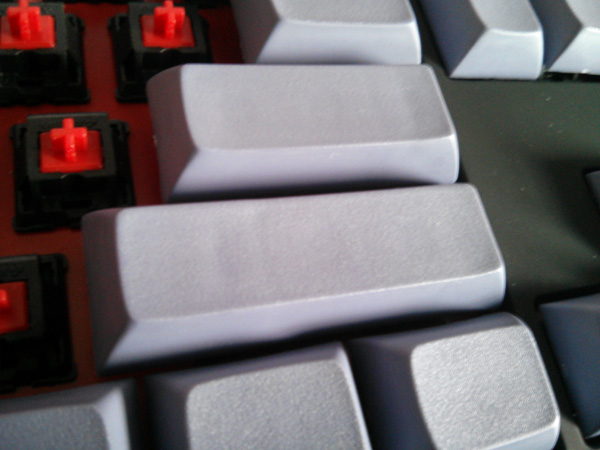
Modifiers placed! Included the spacebar because it uses the stabilizers too. Notice in picture 3, there are some faint vertical lines. That is the thin PBT/quality issue, you can faintly make out the housing of the top, and feel the ridges. It’s not too bothersome on the enter key/right shift though so I don’t notice while typing.
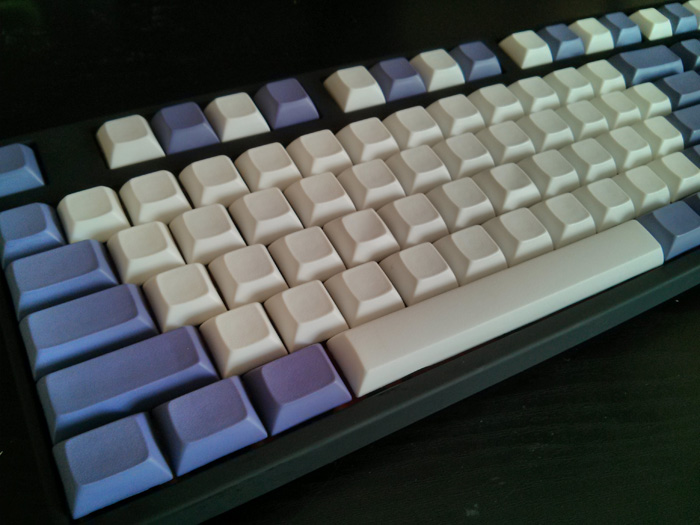
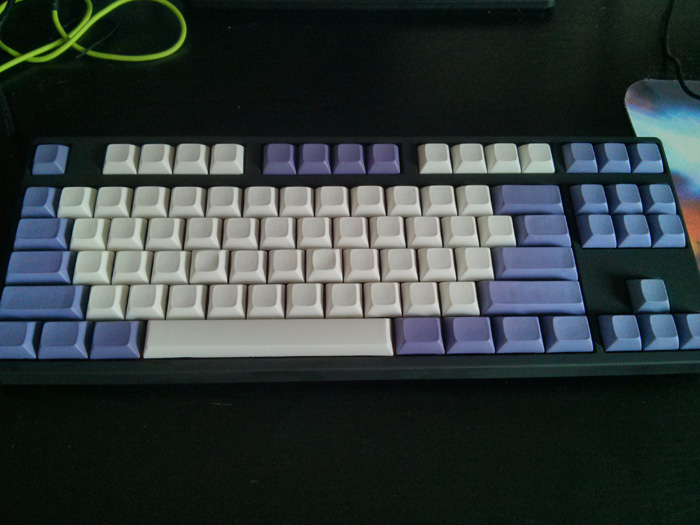
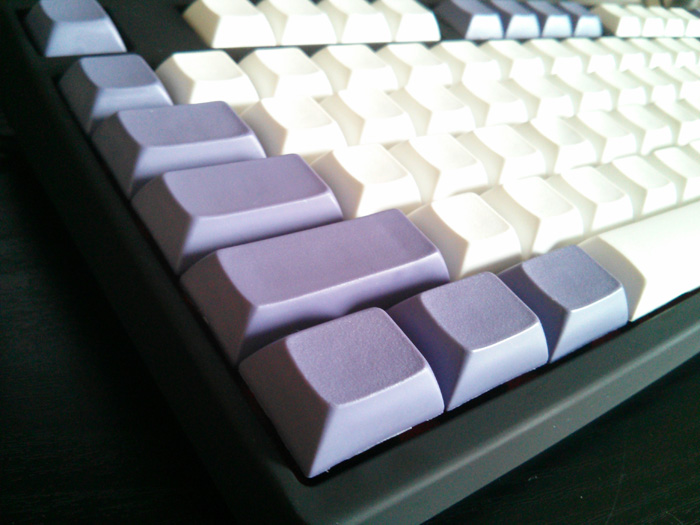
And the final results. The first picture has the function keys with alternating colours. The other two have them grouped together, alternating.
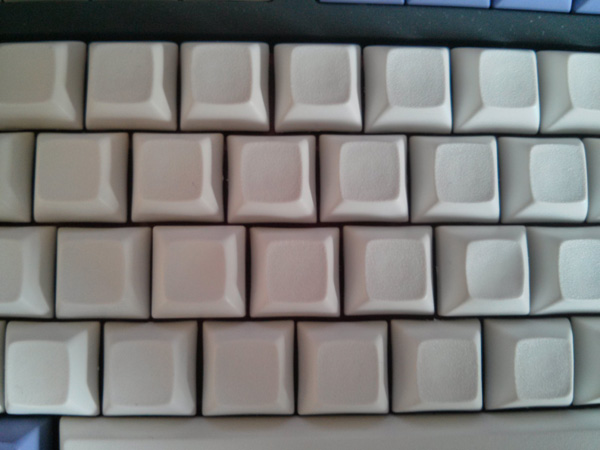
Now, you can see the issue with the bent keys and bits of excess plastic. I’ll probably end up filing down the sides of the offenders. Final note? I am still decently happy with the look of the keys even with the quality. There’s not of choice when it comes down to blank PBT keys it seems, with the colour options of Signature Plastics. Ducky PBT key sets come to mind but the colours are not up my alley, and are sold in their own sets. Buying two sets to mix the colours is a bit ridiculous (MSRP $66 a set). From the angle that I see my keyboard normally, there is almost no issues so I am a fairly happy customer.